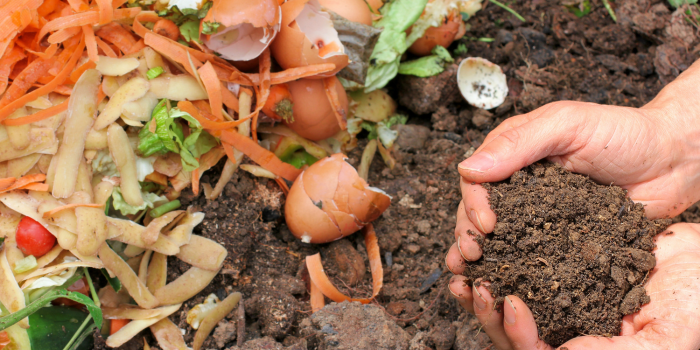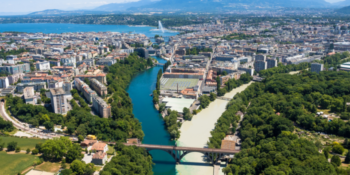Mother Nature takes care of us in countless ways. However, with global warming, pollution, and rampant deforestation, man has shown very little love in return. Little by little, we’re doing our bit to correct the ecological harm we’ve caused. One thing that’s been gaining popularity lately is composting, the environmentally friendly way of disposing of waste. Not only does it reduce waste going into landfills, but it can also help replenish the soil, save water, and reduce greenhouse gas emissions. But how much of an impact does composting have on the environment? Is it truly a green act? I’m here to give you the lowdown on composting’s environmental impact.
Reduction of Greenhouse Gas Emissions
Firstly, let’s talk about the effects of greenhouse gas emissions on the planet. Carbon dioxide, methane, and other greenhouse gases trap heat in the earth’s atmosphere, raising the temperature and causing climate change. This climate change can result in more extreme weather conditions, the melting of ice caps, sea-level rise, and the extinction of various animal species. By reducing our greenhouse gas emissions, we can make a significant impact on saving our planet from further harm.
One way we can reduce greenhouse gas emissions is by switching to renewable energy sources. Fossil fuels such as coal, oil, and gas emit large amounts of carbon dioxide into the atmosphere when burned. However, renewable energy sources, such as solar, wind, geothermal, and hydroelectric power, produce no emissions while generating electricity. By investing in renewable energy and supporting clean energy policies, we can reduce our dependence on fossil fuels and slow the rate of climate change.
Another way to reduce greenhouse gas emissions is to reduce waste. The decomposition of organic waste in landfills produces methane, a potent greenhouse gas. By composting food scraps and yard waste, we can reuse organic material and reduce the amount of waste sent to landfills. Additionally, buying local products and reducing meat consumption can also help reduce food waste, methane emissions, and the carbon footprint of our diets.
Transportation is also a crucial factor in reducing greenhouse gas emissions. Using public transportation, carpooling, bike riding, or walking rather than driving alone can significantly reduce carbon emissions. Electric vehicles are a more eco-friendly transportation option, with no tailpipe emissions and fewer greenhouse gas emissions overall.
Finally, let’s not forget that our own consumer choices can make a big difference. Buying energy-efficient appliances, using LED light bulbs, and using reusable bags and water bottles are small changes that can add up to significant energy savings and reduced greenhouse gas emissions.
Think Green: The Witty Guide to Conserving Natural Resources
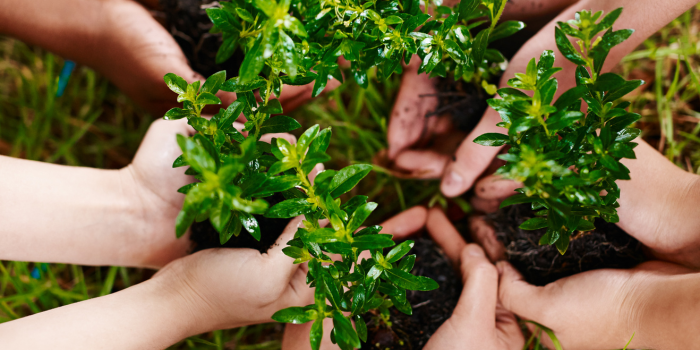
Let’s face it, folks, we’re all guilty of wasting natural resources in our daily lives. From the endless bottles of plastic water we consume to the tons of food scraps we toss in the bin. But it’s never too late to turn things around, and that’s why I’m here to dish out some witty tips to help you conserve natural resources. We’ll start with one of my favorite methods—composting.
Composting…you say…
Composting is an excellent and simple way of conserving natural resources. By composting, you can turn your food scraps, yard waste, and other organic materials that would otherwise end up in your garbage bin into nutrient-rich soil for your garden. Composting is a helpful practice because it reduces the amount of organic waste going to landfills, thus reducing methane production which is a potent greenhouse gas. Simply put, composting gives you top-quality fertilizer for free, helps manage waste, reduces carbon footprint and conserves natural resources.
Composting doesn’t just reduce landfill waste; it also conserves natural resources. For instance, home gardening with compost can significantly reduce the use of chemical fertilizers, which contribute to soil degradation, pollution, and habitat loss. By using your compost in your home garden, you replenish the soil with organic matter, which helps retain moisture, suppresses weed growth, and increases the soil’s nutrient content.
Composting conserves natural resources in many ways. As carbon dioxide emissions continue to contribute to climate change, composting offers an alternative to the old ways of managing waste. By utilizing the process of composting, you are reducing the greenhouse gas emissions created by organic waste rotting in a landfill. This composting process also helps keep water clean! Composting helps reduce harmful pollutants that seep into our water systems when organic waste decomposes in landfills. Not only does that better the environment, but clean water also ensures a healthy community.
Since natural resources are finite, every little bit counts. So, how does composting really help conserve natural resources? A well-managed compost system can help you achieve a low-waste lifestyle. And as waste reduction becomes a part of a daily routine, we help slow down the depletion of natural resources – such as water, fossil fuels, and finite minerals. The end result means we all sustainably use and manage our resources, leaving behind a greener planet for generations.
So, Composting Is Totally Doable?
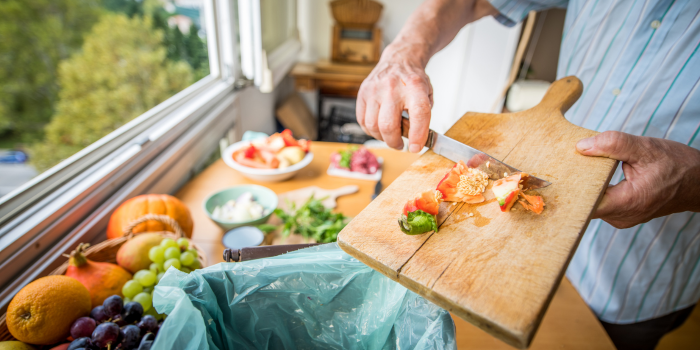
Adopting a green lifestyle is a journey, not a sprint. But the great news is that every step counts in conserving natural resources. Composting is one such step that offers a significant opportunity to slow down the depletion of natural resources. Whether you’re an avid gardener or not – composting is an eco-friendly solution that can save you money and help conserve the environment. So, let’s get started, throw in those scraps, and watch as you work magic on the planet!
Other Benefits of Composting You May Not Know About
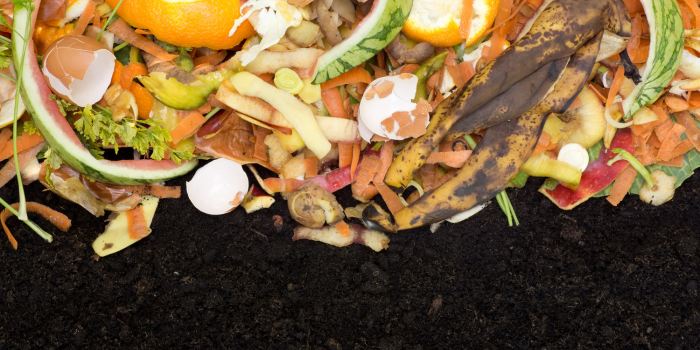
If you’re into green living, then you know about the benefits of composting. It’s great for reducing waste, helping the environment, and producing nutrient-rich soil for your garden. But did you know that composting can also provide other benefits that you may not have considered? In this post, we’ll take a look at some of the less-known benefits of composting and how they can help you.
1. Soil Improvement
Composting is an excellent way to improve soil quality. The rich soil that is created by composting is filled with nutrients that plants need to grow. Composting can also improve soil structure, which helps with drainage and can prevent soil erosion. By adding compost to your garden bed or lawn, you can improve the texture of the soil and ensure that your plants have all the nutrients they need to thrive.
2. Reduced Need for Synthetic Fertilizers
Composting provides a natural alternative to synthetic fertilizers. Synthetic fertilizers can harm the environment by releasing harmful chemicals into the soil and water supply. Composting, on the other hand, uses natural ingredients that are rich in nutrients, such as food scraps and yard waste. These ingredients break down over time, releasing their nutrients into the soil. By using compost instead of synthetic fertilizers, you can reduce your environmental impact and keep your garden healthy.
3. Water Retention
Composting can also help improve water retention in your garden. The rich soil created by composting holds moisture better than other types of soil, which means your plants will need less water to stay healthy. This is especially useful during hot, dry weather when water is scarce.
4. Pest Control
Composting can also help control pests in your garden. By using compost instead of synthetic fertilizers, you provide a healthy environment for beneficial insects and bacteria to thrive. These beneficial organisms can help control harmful pests and keep your plants healthy.
Don’t Let Composting Get You Down: Solutions to Overcome the Challenges
Don’t Let Composting Get You Down: Solutions to Overcome the Challenges
Let’s address some of the most common challenges that come with composting. First up is odors. Nobody wants their backyard smelling like a compost bin. Plus, those smells can attract unwanted pests like raccoons or rats. Another issue is the balance of carbon and nitrogen in your compost. Getting the right mix of “brown” materials like dried leaves and “green” materials like food scraps can be tricky. If you get the balance wrong, your compost won’t break down properly. And finally, there’s the problem of space. Not everyone has a huge backyard or designated composting area, so finding space can be a challenge.
Solutions to Overcome Those Challenges
Now, let’s talk solutions! First, let’s tackle the issue of odors. One way to combat smells is to make sure you’re adding enough brown materials to your compost. This can help absorb any excess moisture from your food scraps, which can worsen odors. Another solution is to compost in a closed bin or tumbler. This can help keep pests out and odors in. Next up, let’s talk about the carbon-to-nitrogen ratio. The ideal ratio is 30 parts carbon to 1 part nitrogen. But don’t worry if you don’t have a perfect balance. You can always adjust by adding more carbon-rich materials like shredded paper or cardboard. And finally, let’s talk about space. Not everyone has a big backyard, but that doesn’t mean you can’t compost. Try using a worm bin or finding a smaller composting unit that can fit on your balcony or patio.
Importance of Continued Education and Improvement
But wait, there’s more! Composting can always be improved upon. Continued education is key to developing a thriving compost pile. Attend workshops or read books on composting to learn even more about how to create healthy soil for your garden. And don’t forget to monitor your compost pile. Check the temperature and moisture levels regularly to ensure everything is breaking down properly. By keeping an eye on it, you can make adjustments as needed to keep it at peak performance.
The Environmental Impact Of Composting: Our Thoughts
In conclusion, composting can come with its fair share of challenges, but with some simple solutions, anyone can create their very own garden gold. By addressing issues like odors, carbon-to-nitrogen ratios, and space, you can create a thriving compost pile that will benefit both your garden and the earth. And remember, composting is a never-ending learning experience. So keep educating yourself and monitor your compost pile regularly to ensure it keeps breaking down efficiently. Happy composting!
Sources:
- “Composting At Home.” (2021). U.S. Environmental Protection Agency.
- “Benefits of Composting.” (2021). Planet Natural Research Center. Retrieved from: https://www.planetnatural.com/composting-101/making/why/
- Molla, R. (2021). “The case for making composting mandatory.” Vox.
- “Composting: A Green Guide to Managing Organic Materials.” (2021). National Geographic.

Iryna wants to make this world a better, greener place with less waste. Her mission is to protect the planet from plastic pollution by bringing awareness to this global crisis through her website. Send her an email to learn more about her mission and how we can help!
